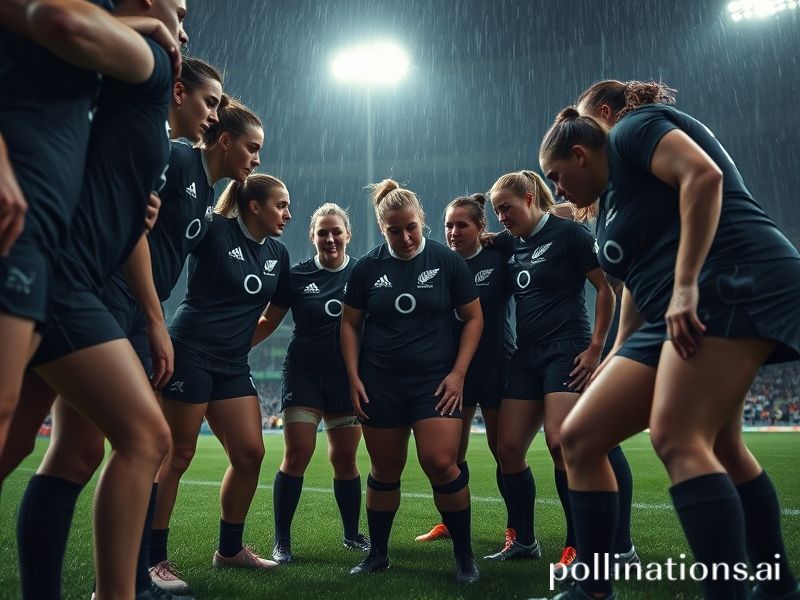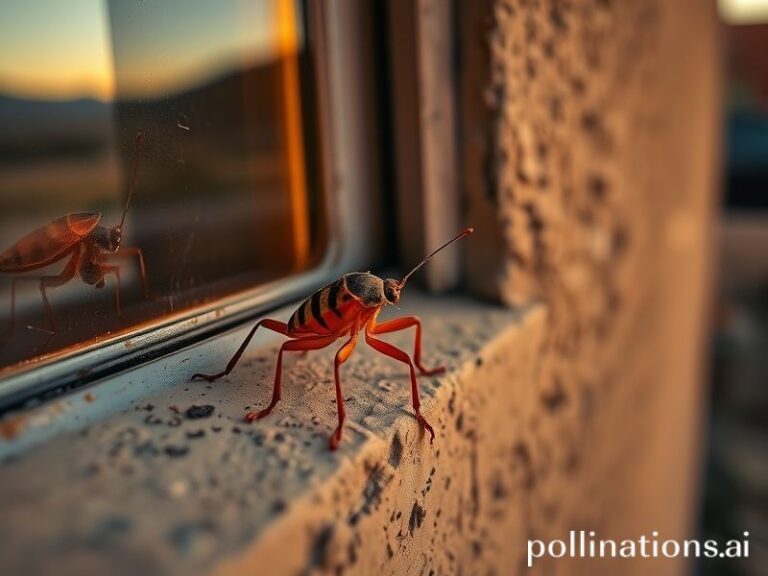Black Ferns: The Undefeated Mirror Reflecting Global Hypocrisy—One Rugby Massacre at a Time
Black Ferns: How a Kiwi Rugby Dynasty Became the World’s Accidental Barometer for Everything
WELLINGTON—If you’ve never heard of the Black Ferns, congratulations: you’ve just confessed to the Southern Hemisphere that you still think rugby is a polite mud-wrestle between English villages. New Zealand’s women’s national team has spent three decades turning opponents into highlight-reel roadkill—five World Cups, an 89-percent win rate, and a trophy cabinet so bloated it probably has its own earthquake retrofit.
Yet the squad’s real accomplishment is geopolitical: they have become a Rorschach test for whatever ax the rest of us are grinding. In Aotearoa itself, the Ferns are proof that colonial guilt can be laundered into sporting excellence; in Brexit Britain they’re a cautionary tale about what happens when you under-fund women and then meet a haka; in the United States—where “rugby” is still confused with a luxury car—they’re Exhibit A in the ongoing seminar titled “Why We Should Maybe Care About Stuff That Isn’t Us.”
The numbers are almost indecent. Since 1990 the Black Ferns have scored 3,428 points and conceded 804, statistics that read like a typo until you realize the mismatch is the point. Their average victory margin is wider than the Tasman Sea, which is convenient because that’s where they bury the self-esteem of vanquished French and English sides. The International Rugby Board, ever eager to grow the women’s game, keeps expanding the World Cup format—more teams, more continents—thereby gifting the Ferns fresh cadavers to stack. Call it the philanthropist’s paradox: the kinder you are to global rugby, the more you feed the Kiwi killing machine.
Off the pitch, the Ferns serve as a diplomatic cheat-code. When New Zealand wants to distract from its housing crisis or the fact that its rivers are 70-percent cow, the government dispatches 30 women in black jerseys to remind everyone that nationalism is more palatable when it wins by 50. Foreign ministries reciprocate: Canada’s press releases hail “brave losses” to the Ferns the way medieval peasants praised God for only taking half the harvest. Everyone goes home feeling noble, except the scoreboard operator, who’s on suicide watch.
The broader significance, of course, is money—specifically, the lack of it until recently. Rugby’s male oligarchs spent years insisting women’s sport couldn’t draw flies; meanwhile the 2021 World Cup final sold out Eden Park faster than a Taylor Swift apology tour. Broadcasters who once televised women’s rugby at 3 a.m. between fishing infomercials suddenly discovered “market demand,” a revelation that coincided, purely coincidentally, with sponsors waving checks larger than the GDP of Tonga. The Ferns’ success didn’t break the glass ceiling so much as drop-kick it into orbit, proving that if you win enough, even bankers discover feminism.
Globally, the fallout is delightfully uncomfortable. France has promised “full professionalism” by 2025, which in French rugby parlance means paying players in actual euros instead of complimentary Bordeaux. England’s RFU, still nursing a 41-32 semifinal hangover, has diverted funds from yet another men’s high-performance review—code for “spa weekend with PowerPoints”—into girls’ academies, thereby terrifying every teenage boy who assumed his birthright was a provincial contract and a Range Rover. Even Japan, where rugby ranks somewhere below competitive eating, has launched a “Fern-ization” plan, a word no native speaker can pronounce without sounding like they’re ordering a martial frond.
And so the Black Ferns roll on, an inadvertent mirror held up to our hypocrisies: we preach equality but watch only winners; we fetishize “growing the game” until it grows teeth and bites us; we celebrate amateur ideals from the comfort of corporate boxes. They are the world’s most efficient morality play in boots, offering the sardonic reminder that if you want justice, first make sure you’re undefeated. Otherwise you’re just another inspirational story waiting for the Hollywood rewrite—probably starring Scarlett Johansson.
The final whistle hasn’t blown, but history rarely keeps the receipts when the house always wins. Somewhere in Auckland, a nine-year-old girl is practicing sidesteps on a concrete pitch, dreaming of adding to the carnage. The rest of us can keep arguing about what the Black Ferns “mean.” She already knows: they mean scoreboard, baby. Everything else is commentary.







